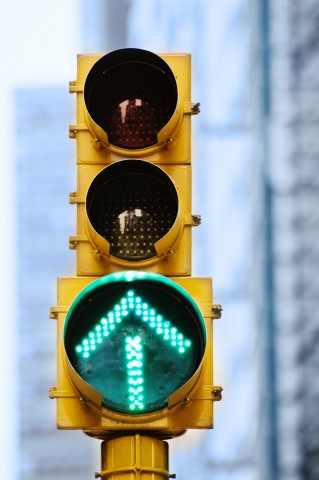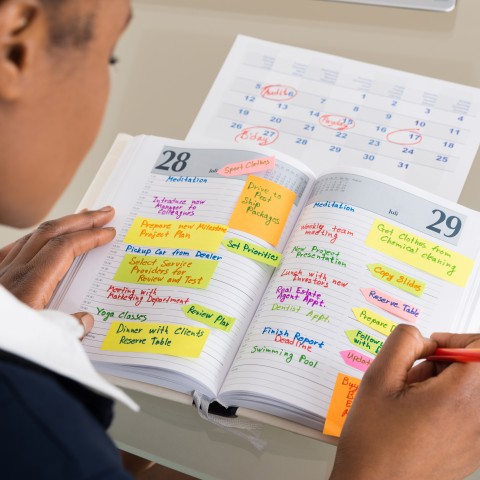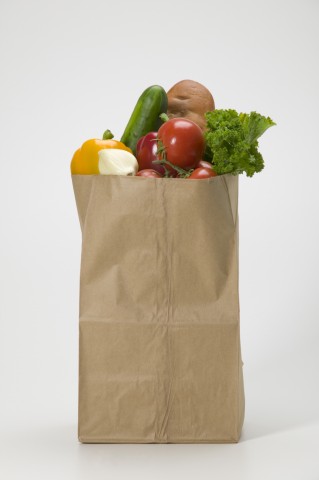
Did you know that every noun in Spanish has a gender? Once you learn the words on our Spanish nouns list, and study up on Spanish nouns gender rules, you’ll be able to recognize them and speed up your learning.
For even more words, you can check out the Spanish core 100-word list at SpanishPod101!

Table of Contents
- What is a Noun in Spanish?
- Noun-Adjective Agreement in Spanish
- Essential Spanish Nouns to Know: Common Spanish Nouns List
- Conclusion
1. What is a Noun in Spanish?

Nouns name or identify a person, animal, place, thing, or idea. Spanish nouns can be singular or plural, but the most important thing you need to know if you’re a Spanish learner is that nouns are always gendered. Let’s dig a little deeper into Spanish nouns’ gender.
Nouns in Spanish can be masculine or feminine. Crazy, huh? How do you know if a Spanish word is feminine or masculine? And what about plural vs. singular nouns?
It may take some time to get used to these rules, but once you get the hang of it, you’ll be able to do this without even thinking!
To recognize the plural nouns in Spanish, you’ll see these words end in the letter -s. If you don’t see the -s, the Spanish noun is singular, will normally end with one of the following vowels: -a, -e, or -o.
To determine the gender of nouns in Spanish:
- Feminine nouns in Spanish will end with an -a.
- Masculine nouns in Spanish will end with an -e or -o.
The idea of gender nouns in Spanish can be confusing at first because there are some nouns in Spanish that don’t follow the rules above.
For example el sol, or “the sun,” ends with the consonant -l. In cases like this, the article will tell you which gender a noun is (unlike in English). Most nouns are used together with an article, like in this example. El tells you the noun is masculine, even if the noun itself doesn’t provide that information.
In English, the articles “the” or “a(n)” accompany nouns. In Spanish, here are two translations:
Masculine articles:
- Singular: el Plural: los
Example:
- El sol brilla todas las mañanas.
“The sun shines every morning.” - Yo voy a misa todos los domingos.
“I go to church every Sunday.”
- Singular: la
- Plural: las
- La luna está llena hoy.
“We have a full moon today.” - Las puertas están abiertas hasta las 22 h.
“Doors are opened until 10 p.m.”
Possessive pronouns in Spanish can also help you to identify the gender of the noun. Why? Because of their ending vowel of -o or -a.
For example:
- La cama es mía.
“The bed is mine.” - El coche es mío.
“The car is mine.”
The examples above also show you that you have to use the possessive pronouns in Spanish depending on the gender of the object. In this case, if you’re a man and you want to talk about “the house,” which in Spanish is a feminine object, you have to say La casa es mía (“The house is mine”).
2. Noun-Adjective Agreement in Spanish

The noun-adjective agreement is another essential aspect of Spanish nouns for beginners. Adjectives can help you identify the gender of a noun in Spanish. If the noun in Spanish is feminine, the adjective should be feminine:
- Mi novia es tímida.
“My girlfriend is shy.”
If the noun in Spanish is masculine, the adjective should be masculine:
- Mi hermano es alto.
“My brother is tall.”
This noun-adjective agreement in Spanish can also help you with singular and plural nouns in Spanish:
- Mi coche es pequeño.
“My car is small.” - Los autobuses son grandes.
“Buses are big.”
There are some nouns in Spanish that are neutral or of ambiguous gender. How can you identify them? By the articles.
- La atleta
“Female athlete” - El atleta
“Male athlete”
Some Spanish plural nouns exceptions include:
Nouns that end in -z, such as pez (“fish”), should end in -ces: Peces.
If the noun in Spanish ends in a consonant, you should add -es.
- Doctor
“Doctor” - Doctores
“Doctors”
When you’re referring to a group of things or people, when there’s at least one masculine noun in Spanish, you should refer to the entire group as masculine:
- 1 perro + 3 perra = Los perros.
- “1 male dog + 3 female dogs = The dogs [masculine].”
Without nouns, we wouldn’t be able to name people, things, or ideas, so we need them for everything. This is why in Spanish, this is one of the first things you should learn, together with verbs, which are a basic Spanish grammar lesson.
Once you’ve stopped by our page on the Top 25 Nouns, you may want to learn more—and you’re in the right place! In the next part of this lesson, we’ll go over common Spanish nouns by category, and allow you to see each of these Spanish nouns in a sentence!
Without further ado, our key Spanish nouns list.
3. Essential Spanish Nouns to Know: Common Spanish Nouns List

1- “Appliances” (Electrodomésticos)
Televisión — “TV”
La televisión está encendida.“The TV is on.”
Ordenador portátil — “Laptop”
Mi hermano me ha roto mi ordenador portátil.“My brother broke my laptop.”
Frigorífico — “Fridge”
He visto a mi hermano quien estaba buscando comida en el frigorífico.“I saw my brother, who was looking for food in the refrigerator.”
Aire acondicionado — “Air conditioner”
Los aires acondicionados son bastante costosos.“Air conditioners are very expensive.”
Secador de pelo — “Hairdryer”
Yo tenía un secador muy bueno.“I used to have a good hairdryer.”
Ventilador — “Fan”
Cuando encendí el ventilador, mis deberes volaron por todo el cuarto.“When I turned on the fan, my homework blew all over the room.”
Microondas — “Microwave”
¿Ponemos las palomitas en el microondas?“Shall we put the popcorn in the microwave?”
Lavadora — “Washing machine”
Se me ha roto la lavadora.“My washing machine is broken.”
Cocina — “Stove”
Hay tres ollas en la cocina.“There are three pans on the stove.”
2- “Technology” (Tecnología)

Móvil — “Mobile phone”
Hoy día hay móviles por todo el mundo.“Nowadays there are mobile phones everywhere.”
Blog — “Blog”
Todas las empresas deberían tener un blog.“Every company should have a blog.”
Aplicación — “App”
Puedes buscar cualquier cosa en la aplicación.“You can search for anything on their app.”
Página web — “Website”
Estaba visitando tu página web; es increíble.“I was looking at your website; it’s amazing.”
Cuenta — “Account”
¿Tienes cuenta de Instagram?“Do you have an Instagram account?”
Foto — “Picture”
Las fotos están muy pequeñas.“The pictures are too small.”
Descargar — “Download”
¿Me puedes descargar estas fotos?“Can you download these pictures?”
Contraseña — “Password”
Se me olvidó la contraseña de mis redes sociales.“I forgot my password to my social media accounts.”
Archivo — “File”
No has agregado el archivo al correo.“You did not attach the file to the email.”
Correo basura — “Spam”
Me ha llegado tu correo al correo basura.“I got your email in my spam.”
Tablet — “Tablet”
Voy a subir todas mis fotos desde mi tablet a mi Facebook.“I will upload all my pictures from my tablet to my Facebook.”
Wifi — “Wifi”
¿Hay wifi aquí?“Do you have wifi here?”
3- “Transportation” (Transporte)

Avión — “Plane”
El avión a París tiene dos horas de retraso.“The plane to Paris has a two-hour delay.”
Tren — “Train” / Metro — “Subway”
Cada día cojo dos trenes y el metro para llegar al trabajo.“I take two trains and the subway to get to work every day.”
Bicicleta — “Bike”
La bicicleta es el mejor método de transporte en Amsterdam.“The bike is the best transportation method in Amsterdam.”
Autobús — “Bus”
Los autobuses son un desastre en Medellín; nunca llegan a tiempo.“Buses are a mess in Medellin; they’re never on time.”
Estación de tren — “Train station”
¿En qué estación de tren bajas?“In which train station do you get off?”
Parada — “Bus stop”
En cinco paradas me bajo.“In five bus stops I’ll get off.”
Semáforo — “Traffic light”
Fíjate en los semáforos o algún día tendrás un accidente.“Look at the traffic lights, otherwise you’ll have an accident one day.”
Patinete eléctrico — “Electric scooter”
Los patinetes eléctricos causan muchos accidentes a los peatones.“Electric scooters cause a lot of pedestrian accidents.”
Carretera — “Road”
¿Cuál es la carretera que llega más rápido a tu casa?“What is the fastest road to your home?”
Taxi — “Taxi”
En Nueva York los taxis son amarillos.“Taxis in New York are yellow.”
Intersección — “Intersection”
La intersección camino al centro es súper peligrosa.“The intersection on the way to the center is very dangerous.”
4- “Restaurant” (El restaurante)

Copa — “Glass”
La copa está llena de vino blanco.“The glass is full of white wine.”
Jarra — “Jug”
¿Me traes una jarra de agua, por favor?“Can I have a jug of water, please?”
Plato — “Plate”
Mi plato está sucio.“My plate is dirty.”
Tenedor — “Fork”
El arroz no se come con tenedor.“Rice is not eaten with a fork.”
Cuchara — “Spoon”
En la India se comen el arroz con cuchara.“In India, the rice is eaten with a spoon.”
Cuchillo — “Knives”
Tenemos muchos tenedores, cucharas y cuchillos.“We have many forks, spoons, and knives.”
Vaso — “Glass”
El vaso está lleno de whiskey.“The drinking glass is full of whiskey.”
Taza — “Mug”
Mi taza favorita es la rosa.“My favorite mug is the pink one.”
5- “School essentials” (Lo esencial para volver a clase)

Bolígrafo or Boli — “Pen”
¿Me puedes prestar un boli?“Can I borrow a pen?”
Asignatura — “Subject”
Mi asignatura favorita en la escuela eran las matemáticas.“My favorite subject in school was math.”
Universidad — “University”
Sarah era mi mejor amiga en la universidad.“Sarah was my best friend at university.”
Deberes — “Homework”
El niño está haciendo los deberes.“The boy is doing homework.”
Beca — “Scholarship”
He recibido una beca completa de la Universidad de Brighton.“I have received a full scholarship from University of Brighton.”
Mochila — “Backpack”
Cómprale la mochila de color negro.“Buy the black backpack.”
Cuaderno — “Notebook”
Se me perdió el cuaderno.“I have lost my notebook.”
6- “Occupation” (Profesiones)

Enfermero — “Nurse”
Este hombre es un enfermero.“This man is a nurse.”
Empresario — “Executive”
Los empresarios están teniendo una reunión en la sala de juntas.“The executives are having a meeting in the boardroom.”
Policía — “Police”
El oficial de policía no tiene su uniforme.“The police officer does not have his uniform.”
Cocinero — “Cook”
El cocinero está asando el cerdo.“The cook is barbecuing pork.”
Encargado — “Manager”
El encargado del supermercado está dando instrucciones.“The store manager is giving instructions.”
Atleta — “Athlete”
Mi mejor amiga es atleta profesional.“My best friend is a professional athlete.”
Ingeniero — “Engineer”
Mi hermano es ingeniero en Apple.“My brother is an engineer at Apple.”
Profesor — “Teacher”
Mi madre es profesora.“My mother is a teacher.”
Médico — “Doctor”
Luisa estudió mucho para ser médico.“Luisa studied a lot to become a doctor.”
Bombera — “Firewoman”
Sofía quiere ser bombera.“Sofia wants to be a firewoman.”
Bibliotecaria — “Librarian”
Mi tía es bibliotecaria.“My auntie is a librarian.”
7- “Family members” (Miembros de la familia)

Familia — “Family”
La familia está en la foto.“The family is in the picture.”
Madre — “Mother” / Padre — “Father”
Mi madre y mi padre estuvieron casados por 30 años.“My mother and father were married for 30 years.”
Hija — “Daughter”
El padre está mirando a su hija.“The father is looking at his daughter.”
Hijo — “Son”
Mi hijo ha estudiado hasta ahora dos carreras.“My son has studied for two BAs so far.”
Mamá — “Mom”
¡Ayuda a mamá! Está llevando la cesta de las toallas ella sola.“Help mom! She is carrying the towel basket by herself.”
Abuela — “Grandmother”
La abuela se está comiendo un plátano.“Grandma is eating a banana.”
Tío — “Uncle”
Mi tío tiene un hijo adoptado precioso.“My uncle has a beautiful adopted child.”
Tía — “Aunt”
¿Es esa tu tía la peluquera?“Is that your aunt who is a hairdresser?”
Hermano — “Brother”
Mi hermano pertenece al equipo de fútbol de la universidad.“My brother belongs to the university football team.”
Hermana — “Sister”
Mi hermana está estudiando para ser policía.“My sister is studying to be a police officer.”
8- “Body parts” (Partes del cuerpo)

Pie — “Foot”
Su pie derecho es más grande que el izquierdo.“His right foot is bigger than his left one.”
Mano — “Hand”
La mujer se está lavando las manos.“The woman is washing her hands.”
Cabeza — “Head”
Deberías usar casco para proteger tu cabeza.“You should wear a helmet to protect your head.”
Brazo — “Arm”
El niño está levantando los brazos.“The child is raising his arms.”
Espalda — “Back”
Mi hermano se ha hecho daño en la espalda por levantar cosas pesadas ayer. “My brother hurt his back by lifting heavy things yesterday.”Pecho — “Chest”
Tengo dolor en el pecho.“I have a pain in my chest.”
Cuerpo — “Body”
Mi hijo está aprendiendo sobre el cuerpo humano.“My son is learning about the human body.”
Dedo — “Finger”
Me he hecho daño en el dedo meñique.“I hurt my pinkie finger.”
Ojo — “Eye”
Se quemó ambos ojos.“He burned both his eyes.”
Oído — “Ear”
Solo puede escuchar por un oído.“He can only hear from one ear.”
9- “Time” (Fechas)

Ayer — “Yesterday”
Ayer por la tarde me tomé la medicina.“I took the medicine yesterday afternoon.”
Vez — “Time”
He perdido la cartera tres veces.“I have lost my purse three times.”
Vida — “Life”
Me gusta el yoga como estilo de vida.“I like yoga as a lifestyle.”
Año — “Year”
Me gusta ir a Italia todos los años.“I like to go to Italy every year.”
Tiempo — “Time”/”Weather”
En México siempre hace buen tiempo.“In Mexico, we always have good weather.”
¿Cuánto tiempo tarda la tarta?
“How long would the cake take?”
Día — “Day”
Espero que tengas un buen día de trabajo.“I hope you have a good day at work.”
Calendario — “Calendar”
¿Cuál es el calendario de festivos de este 2019?“Which is the holiday calendar for this 2019?”
Mañana — “Tomorrow”
Mañana tengo el día muy ocupado.“I have a very busy day tomorrow.”
10- “Food” (Alimentos)

Agua — “Water”
Dicen que es bueno beber dos litros de agua al día.“It is said that it’s good to drink two liters of water a day.”
Carne — “Meat”
Los vegetarianos no comen nada de carne.“Vegetarians don’t eat meat at all.”
Pescado — “Fish”
¿Cuál es el mejor pescado de la ciudad?“What is the best fish in town?”
Pollo — “Chicken”
¡No te comas mi pollo!“Don’t eat my chicken!”
Leche — “Milk”
Me gusta el té con leche.“I like tea with milk.”
Sopa/Crema — “Soup”
Mi madre hace la mejor sopa de invierno.“My mom makes the best winter soup.”
Verduras — “Vegetables”
Yo compro las verduras en el mercado local.“I buy the vegetables in the local market.”
Cerdo — “Pork”
Los musulmanes no comen cerdo.“Muslims don’t eat pork.”
Ternera — “Beef”
Mi plato favorito es la sopa de vegetales con ternera.“My favorite dish is vegetable soup with beef.”
Vino — “Wine”
Siempre me tomo una copa de vino con todas mis comidas.“I always have a glass of red wine with my meals.”
Pan — “Bread”
¿Me trae pan, por favor?“Could you please bring me some bread?”
Cerveza — “Beer”
Dos cervezas más para la mesa cinco.“Two more beers to table five.”
4. Conclusion

Once you familiarize yourself with this Spanish nouns list, start using them in context by trying them out in your conversations. Don’t worry about the feminine and masculine uses in your Spanish nouns practice at first; this will come automatically. You can master your Spanish skills with SpanishPod101, using our fun and practical learning tools for every learner!
Before you go, drop us a comment to let us know if there are any Spanish nouns or grammar rules you’re still struggling with. We’d love to hear from you!










